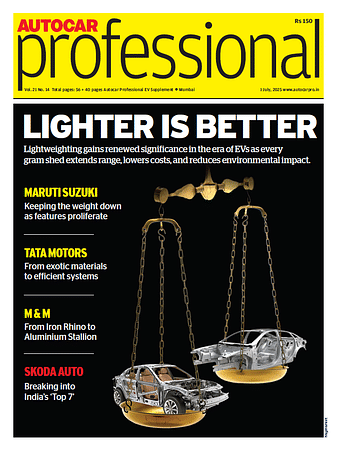Uber aims to develop autonomous electric flying cars by the next decade
The car sharing firm says that an airborne taxi service would ultimately be cheaper and safer than running a standard car.
American ride-sharing service, Uber Technologies is planning to develop an electric flying car in the next decade, which would provide a taxi service in the sky, alleviating traffic, reducing emissions and cutting commute times.
Called a Vertical Take-off and Landing (VTOL) aircraft, Jeff Holden, chief product officer at Uber posted a white paper on the firm’s website talking about the flying car, an abbreviation of Vertical Take-off and Landing.
Uber described the plans as enabling “rapid reliable transport between suburbs and cities, and ultimately, within cities”. Daily long-distance commutes in heavily congested urban areas not served by existing infrastructure would likely to be the first to use the aircraft.
It said more than a dozen companies are working on the project, with “many different design approaches”.
Twice as safe as a car
The electric aircraft, which would be quieter, cheaper and less polluting than its nearest equivalent – the helicopter – would ultimately use autonomous technology making it much safer by “significantly reducing operator error”.
Uber envisages VTOL flying cars can be twice as safe as driving a car through both autonomy and distributed electric propulsion (DEP). The use of DEP allows for fixed-wing VTOLs, which wouldn't need large helicopter rotors and provide lift with greater efficiency than rotors.
However, Uber commented: “No vehicle manufacturer to date has yet demonstrated a commercially viable aircraft featuring DEP, so there is real risk here.”
Cheaper than running a car
Uber believes that in the long term, VTOL flying cars will be more affordable than running a car. Acknowledging that today’s aircraft and helicopters cost about 20 times more than a car, due to low-volume manufacturing, it said: “If VTOLs can serve the on-demand urban transit case well — quiet, fast, clean, efficient, and safe — there is a path to high production volume manufacturing (at least thousands of a specific model type built per year) which will enable VTOLs to achieve a dramatically lower per-vehicle cost. The economics of manufacturing VTOLs will become more akin to automobiles than aircraft.”
It added that early VTOL vehicles are likely to be very expensive, but because the ridesharing model quickly reduces vehicle cost, “the high cost should not end up being prohibitive to getting started”.
“Once the ridesharing service commences, a positive feedback loop should ensure that ultimately reduces costs and thus prices for all users, i.e. as the total number of users increases, the utilisation of the aircraft increases,” the company said.
Uber also identified a number of challenges which must be addressed to make VTOL vehicles viable. These included the certification process for new aircraft concepts, battery technology for electric transport and air traffic control.
The greatest operational barrier for deploying a VTOL fleet is a lack of sufficient locations for landing pads, said Uber.
The company described the vision as “ambitious” but believes “it is achievable in the coming decade if all the key actors in the VTOL ecosystem — regulators, vehicle designers, communities, cities, and network operators — collaborate effectively".
You may like:
- Uber exploring a move towards self-driving trucks
- Uber and Volvo Cars to jointly develop autonomous driving cars
RELATED ARTICLES
Volkswagen Group sells 465,500 BEVs worldwide in first-half 2025, up 47%
With strong growth in Europe (+89%) and the USA (+24%), despite a sales decline in China (-34%), the VW Group’s global B...
Skoda begins sale of made-in-India CKD Kushaq in Vietnam
Before production started, pre-series Kushaq vehicles covered over 330,000 kilometres on a variety of Vietnamese roads a...
Six Japanese companies join forces to expand use of recycled materials in new vehicles
Denso, Toray Industries, Nomura Research Institute, Honda Motor, Matec Inc and Rever Corporation have set up the BlueReb...





 02 Nov 2016
02 Nov 2016
 5687 Views
5687 Views





 Autocar Professional Bureau
Autocar Professional Bureau




